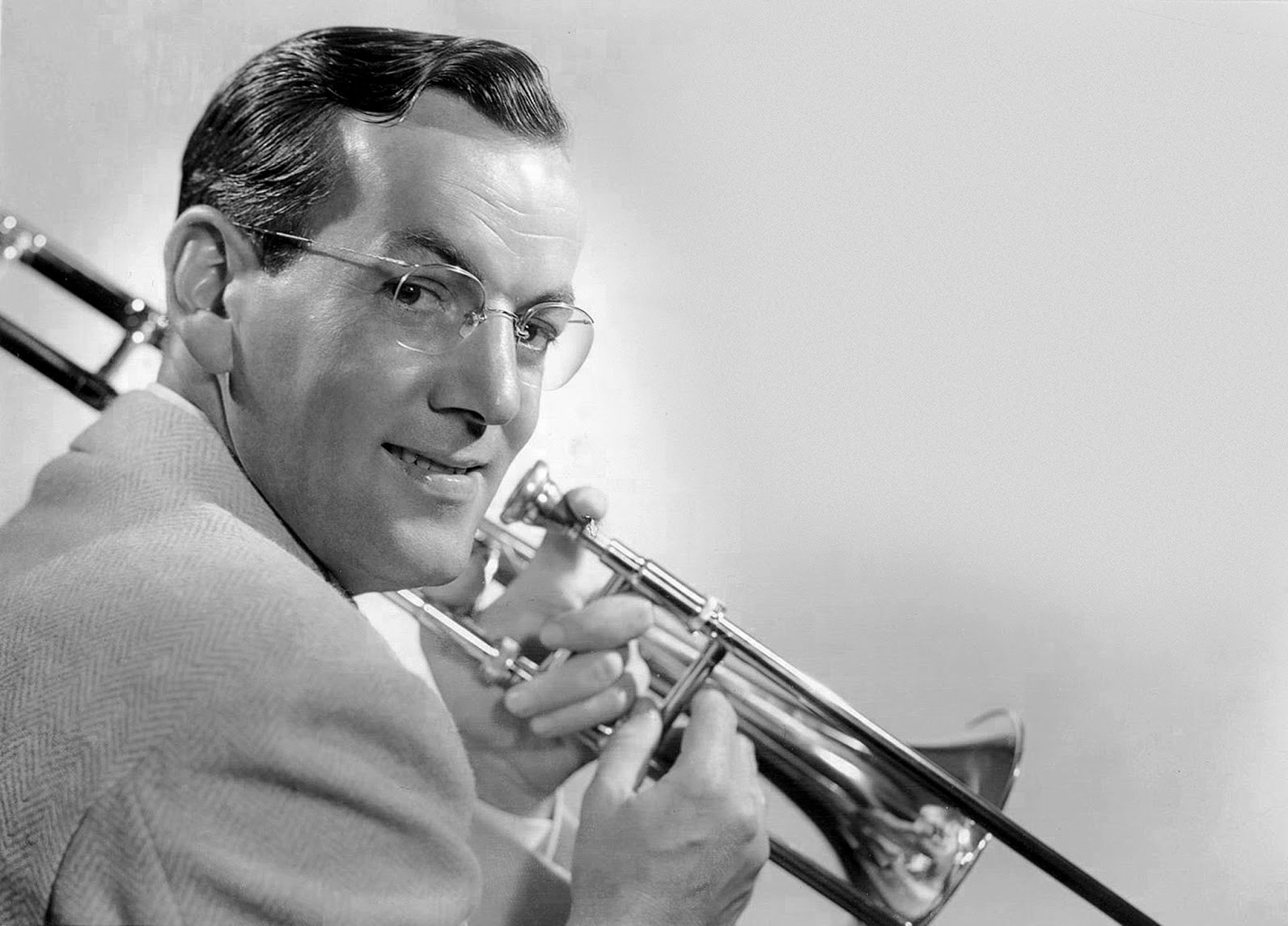Glenn Miller
 Alton Glen "Glenn" Miller (March 1, 1904 – disappeared December 15, 1944; declared dead December 16, 1945) was an American big band conductor, arranger, composer, trombone player, and recording artist before and during World War II, when he was an officer in the US Army Air Forces. His civilian band, Glenn Miller and His Orchestra was one of the most popular and successful bands of the 20th century and the big band era. His military group, the Major Glenn Miller Army Air Forces Orchestra, was also popular and successful.
Alton Glen "Glenn" Miller (March 1, 1904 – disappeared December 15, 1944; declared dead December 16, 1945) was an American big band conductor, arranger, composer, trombone player, and recording artist before and during World War II, when he was an officer in the US Army Air Forces. His civilian band, Glenn Miller and His Orchestra was one of the most popular and successful bands of the 20th century and the big band era. His military group, the Major Glenn Miller Army Air Forces Orchestra, was also popular and successful. Glenn Miller and His Orchestra was the best-selling recording band from 1939 to 1942. Miller's civilian band did not have a string section as his military unit did, but it did have a slap bass in the rhythm section. It was also a touring band that played multiple radio broadcasts nearly every day. Their best-selling records include Miller's theme song"Moonlight Serenade"and the first gold record ever made, "Chattanooga Choo Choo". The following tunes are also on that best-seller list: "In the Mood", "Pennsylvania 6-5000" (printed as "Pennsylvania Six-Five Thousand" on record labels), "A String of Pearls", "Moonlight Cocktail", "At Last", "(I've Got a Gal In) Kalamazoo", "American Patrol", "Tuxedo Junction", "Elmer's Tune", "Little Brown Jug", and "Anvil Chorus". Including "Chattanooga Choo Choo", five songs played by Miller and His Orchestra were number one hits for most of 1942 and can be found on the List of ''Billboard'' number-one singles of 1942. In four years, Miller scored 16 number one records and 69 top 10 hits, more than Elvis Presley (40) and the Beatles (35) in their careers. His musical legacy includes multiple recordings in the Grammy Hall of Fame. His work has been performed by swing bands, jazz bands, and big bands worldwide for over 75 years.
Miller is considered to be the father of the modern US military bands. In 1942, he volunteered to join the US military to entertain troops during World War II and ended up in the US Army Air Forces. Their workload was just as heavy as the civilian band's had been. With a full string section added to a big band, the Major Glenn Miller Army Air Forces Orchestra was the forerunner of many US military big bands.
Miller went missing in action (MIA) on December 15, 1944, on a flight over the English Channel. In keeping with standard operating procedure for the US military services, Miller was officially declared dead a year and a day later. An Army investigation led to an official finding of death (FOD) for Miller, Norman Baessell, and John Morgan, all of whom died on the same flight. All three officers are listed on the Tablets of the Missing at Cambridge American Cemetery and Memorial in Cambridge, England. Since his body was not recoverable, Miller was allowed to have a memorial headstone placed at the US Army-operated Arlington National Cemetery in Arlington, Virginia. In February 1945, he was posthumously awarded the Bronze Star Medal. Provided by Wikipedia
